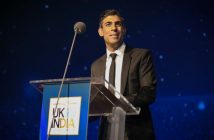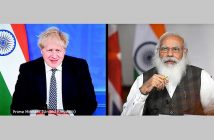Manoj Ladwa speaks to Bilal Hafeez on foreign exchange trends…
 1. What is the most interesting aspect of your job?
1. What is the most interesting aspect of your job?
Actually, there are many interesting aspects of my job! I love the challenge of trying to call markets – it keeps me on my toes, and is never dull. It means I need to keep on top of economic development in all the main economic blocs of the world, shifts in politics and perhaps most importantly the psychology of market players. This last point is helped by me staying in constant contact with clients around the world from policymakers in China to tech companies in California to large pension funds in the Netherlands. I really enjoy the interaction with clients.
2. People say Deutsche Bank is a great place to work; really?
I’ve been at DB for close to nine years now, so I certainly agree it is a great place to work. What I like is the focus on innovation and intellectual excellence, and at the same time the scale of DB is vast. It’s quite rare to see both exist at a bank. Often the niche players are the innovators, and the larger players have the scale. So DB is quite unusual in that regard.
3. What are your predictions for the Indian Rupee in 2011?
I think the Rupee will struggle over 2011. High inflation, and large deficits will hold the currency back. I don’t think it will weaken significantly, but it will not keep pace with the strength in some other Asian currencies. In the long-run, the Rupee should do well assuming some of the infrastructure issues of India get addressed in some way.
4. How prominent a player is China in the international foreign exchange markets?
China has the largest foreign exchange reserves in the world at close to $3 trillion! As a result, it is one of the most important players in the foreign exchange markets as they manage their portfolio of foreign currencies. Another area of significance is China’s own currency. The Chinese exchange rate is currently managed against other currencies and there are restrictions on investment flows into and out of China. But when these restrictions get lifted which will likely be in the next five to ten years, then we could see much more focus and trading of the Chinese yuan.
5. You are a practising Muslim – is faith and working in the City compatible?
I like to go back to basics when I think about how to practise faith. The meaning of Muslim is one who surrenders attachment to his/her ego and recognises his/her dependence to reality/truth. In fact, in the Quran, which Muslims believe to be the word of God, there are numerous instances where both Christians and Jews are called Muslims or believers. So the essence of being a Muslim is quite different to how it is often viewed today, which is unfortunately more like signalling your membership to a group.
When viewed at its essence, to be a practising “Muslim” in the City means not getting drawn into my egoic impulses. The City does throw up its own challenges in that regard, but I imagine it would likely be no different to working as an academic at university or as a lawyer. The trick is to use my work environment to train myself not to get so attached to my ego!
Bilal Hafeez joined Deutsche Bank in 2002. He is now Managing Director and Global Head of FX Research at DB. Bilal is responsible for formulating the bank’s view on currencies. Bilal manages and contributes to DB’s flagship publications: FX Strategy Weekly, FX Blueprint and Exchange Rate Perspectives. Bilal read Economics (MA, Cantab) at St John’s College, Cambridge.






